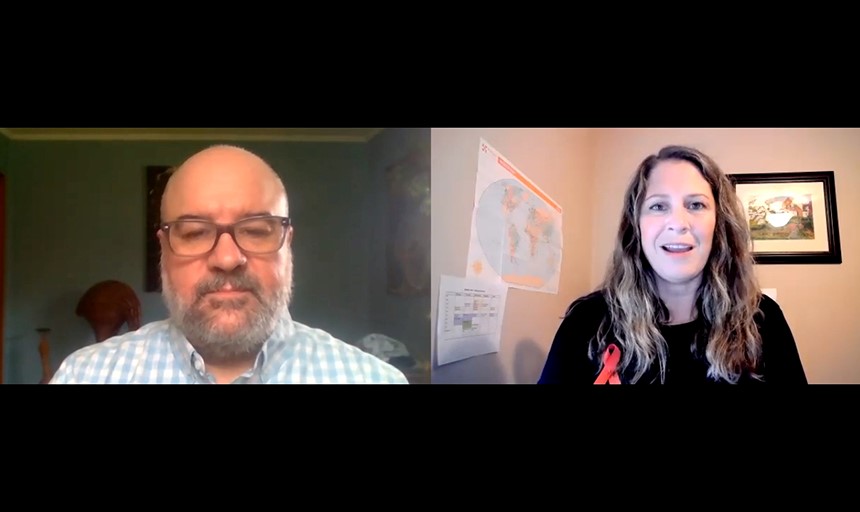Community connection helps students further understand HIV
April 15, 2021

A community partnership is adding value to an already important course.
Dr. Shannon Anderson, associate professor of sociology, has been teaching an Honors course called Global HIV/AIDS since 2012. In recent years, the class has partnered with the Council of Community Service’s Drop-In Center in Roanoke. The Drop-In Center has provided HIV and Hepatitis prevention, testing and coordination of care since 2004, serving those most at-risk of contracting the viruses.
Through this connection, students in the class learned that April 18 is National Transgender HIV Testing Day, and they hope to raise awareness about the day. Kavya Iyer ‘22, one of the students in the class, said this is an important issue that might not be on many people’s radars.
“Our focus on promoting National Transgender HIV Testing Day stemmed from the growing concern that the transgender community is a group that is particularly vulnerable to contracting HIV. Therefore, we wanted to provide information about the barriers and resources to care that the transgender community tend to face,” Iyer said.
The class is promoting National Transgender HIV Testing Day and reminding others of the seriousness of HIV through a series of videos. National Public Health Week was earlier this month, and the members of the class spent the week giving virtual presentations about the history of HIV. These presentations were recorded and uploaded to YouTube. You can view them here.
"Personally, I think that offering Honors courses like these have enabled me to develop a different and unique perspective about a disease that is otherwise heavily stigmatized, and I believe this will make me a more socially knowledgeable physician in the future."
Kavya Iyer '22
Anderson said these presentations have always been part of the course. With many courses taking place online this academic year due to the COVID-19 pandemic, the presentations were done via Zoom and were easy to record. Anderson said she saw more students taking ownership of the presentations and taking them seriously this year now that the presentations were going to be recorded and posted publicly.
That’s not to say that past students haven’t taken the class seriously. Anderson said she often hears from former students who say that the class was one of the most important, impactful classes they took during their time at Roanoke. While HIV is treatable in many cases in the United States, it’s a much more serious diagnosis in many other countries.
“I think one of the really crucial points that comes up repeatedly is that, in other parts of the world, it is still largely a fatal disease,” Anderson said. “So it opens your eyes to really thinking about how we are situated in the world. It also is a course that allows us to talk about marginalized groups of people but focused on one issue. We talk about race, we talk about sexuality, we talk about substance use disorders. You’re at the intersection of a lot of really crucial topics, all in one course.”
Iyer, a biochemistry major and math minor, is on a track to attend medical school. She said this class has helped open her mind, and she believes it will help her in her career.
“Personally, I think that offering Honors courses like these have enabled me to develop a different and unique perspective about a disease that is otherwise heavily stigmatized, and I believe this will make me a more socially knowledgeable physician in the future,” Iyer said.